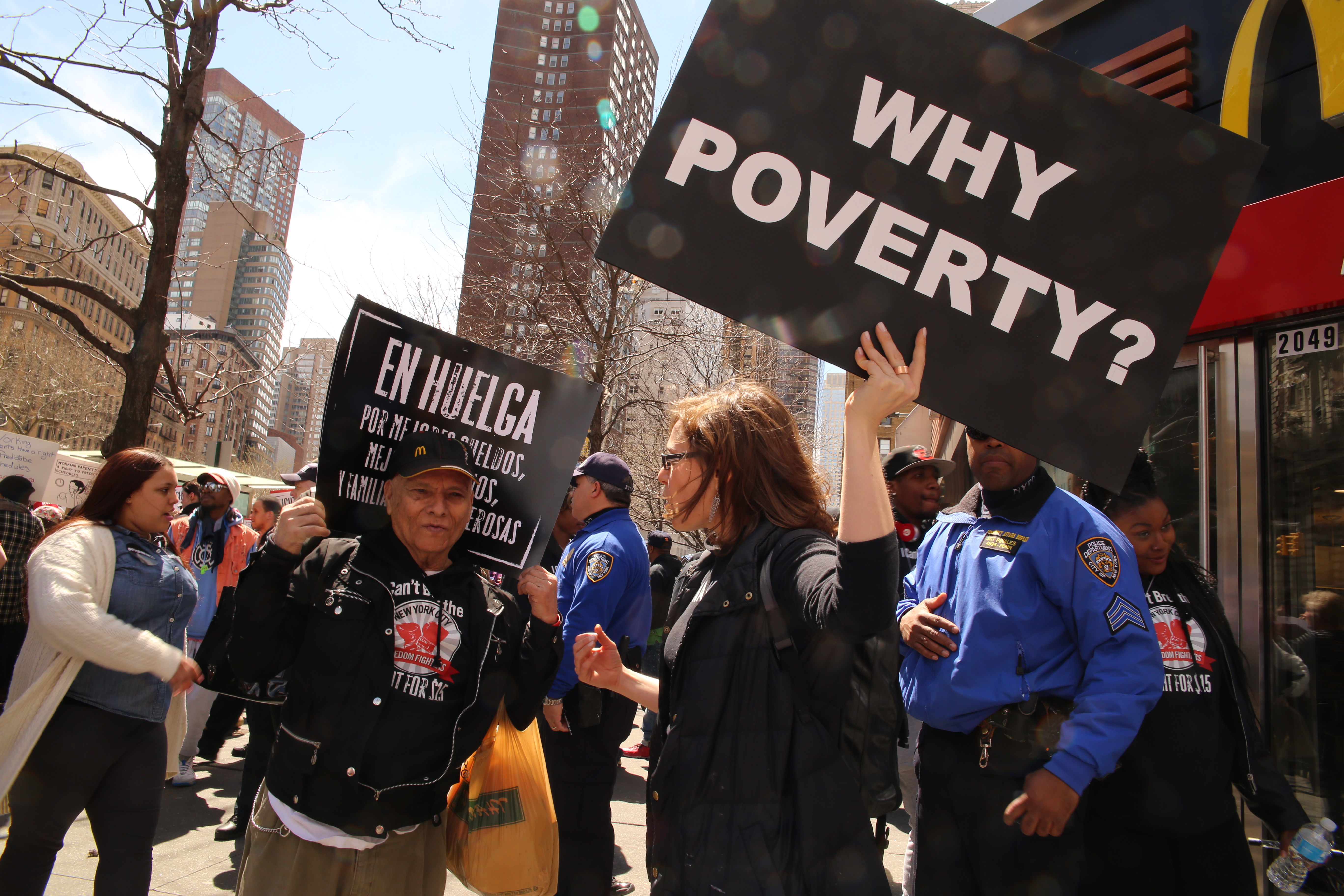On October 16 of last year, when I was on a Target run to stock up on some soup that was on sale, I discovered—as did millions of low-income Americans who rely on food stamps to prevent hunger—that the computer system that tracks benefits on my Electronic Benefit Transfer (EBT) card wasn’t working.
I didn’t get an email or phone call to tell me that it wasn’t working or why. Nobody did. We all found out when we arrived at the store, and some, like me, not until I had reached the cashier. Embarrassed, I turned to my son and tried to explain why we had to leave the store, and our dinner, behind.
Was it because of the government shutdown? How long would we be without access to the small amount in food help that my son and I receive? I had heard from friends that unless this shutdown was resolved before November 1, there would be no food stamps, veterans’ benefits or social security. I was worried that the food stamp shutdown had started early and so were other parents in our community.
But this isn’t what captured the nation’s attention, the humility of food stamp recipients in 17 states who were turned away at the register. People humbled by the need to ask for government help despite long work histories or who, growing up poor, never got a shot at an income above the poverty line.
Instead, what America heard about on that day was the experience at one store, where the cashiers let food stamp recipients shop instead of turning them away. Without a computer system to document how much money in benefits was on each card, some shoppers may have purchased more items than they were eligible for. The media called it “looting,” taking any opportunity to cast a shadow on the integrity of the down-and-out.
I am a responsible, hard-working, minority single mother who returned to college, as a full-time student at UC Berkeley, after the bottom fell out of the economy. I am thankful for the help I receive and work incredibly hard as I carefully manage my limited time and money. Most people I know in my predicament—with incomes below the poverty level—are good people who are trying hard to do the right thing.
Government shutdowns, accidental or intentional, are scary for people like myself and my son who would be homeless and hungry without the temporary help we receive from the safety net that is there for all of us in case we lose our jobs, or are unable to work, or work doesn’t pay enough to afford the basics. While our national leaders have failed to govern based on the real life experiences of most low-income Americans—and instead focus on the sensational exceptions meant to draw the ire of the television watching public—I’m proud to say that some California legislators have charted a different course.
Having heard my story when I told it on a local radio station, California Assembly Member Mark Stone introduced a bill to strengthen protections for consumers with EBT cards by ensuring that both consumers and retailers are informed when there are outages to the EBT system. Governor Brown’s Administration has also now set up a process to inform SNAP recipients when the EBT system goes down.
This month, the Atlantic ran an article about the lack of real-life experience lawmakers have had with poverty. It concluded that, while inadequate, perhaps more lawmakers participating in the SNAP Challenge and other poverty simulations might help build empathy and understanding among our nation’s leaders. I don’t disagree, but I think that they could accomplish a lot more if they would simply stop their rhetoric and listen to someone who knows poverty first-hand like legislators here in California are doing.










